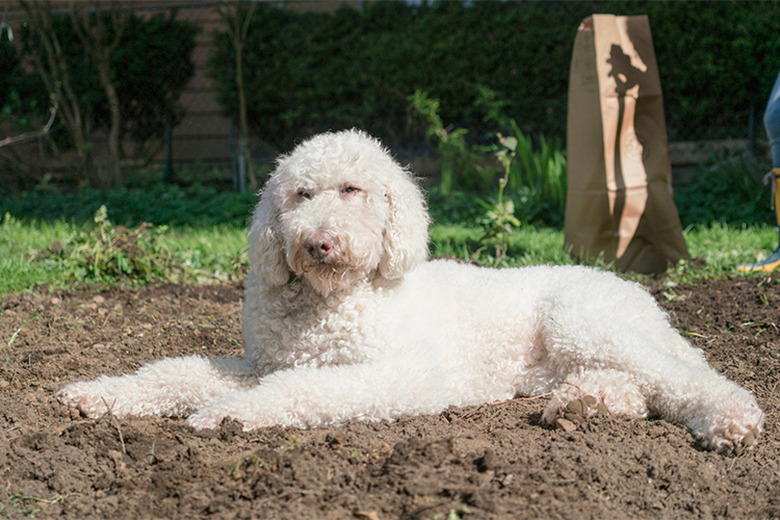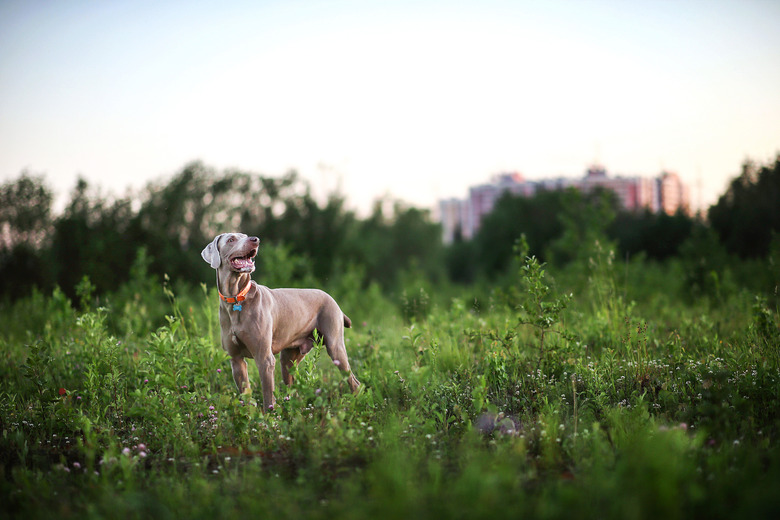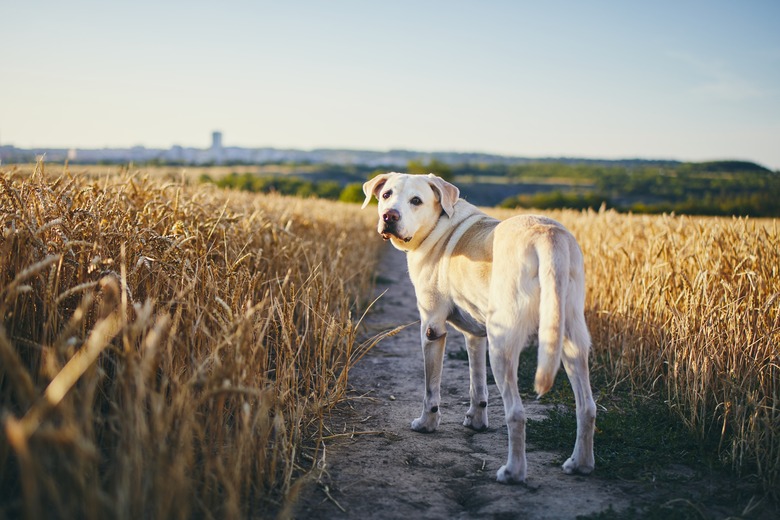Can A Dog Get Sick From Manure?
As those who live on a farm with livestock know, it is not uncommon for dogs to eat manure. In most cases, your pup will be just fine after eating manure, but that doesn't mean you should allow your dog to indulge in this habit. Depending on the type of manure, there are risks when your dog eats feces. So, if your dog ate cow dung or another type of manure, keep an eye out for symptoms that indicate he may need veterinary care and not just a good tooth-brushing.
Eating manure of livestock
Eating manure of livestock
Dog owners in urban and suburban settings don't need to worry about their dogs getting into the manure of livestock, such as horses or cows. If you live or take your dog for off-leash hikes in rural settings, your dog may discover a taste for horse manure. Fortunately, the types of parasites that affect livestock do not affect dogs, so if your dog ate cow dung, he is unlikely to get worms.
However, livestock owners regularly deworm the animals, and if your dog eats manure with a high level of dewormer, such as ivermectin, this can be toxic to your pup. Your dog would need to consume quite a bit of ivermectin, as a toxic dose for a dog is 2,000 micrograms for every kilogram, or 2.2 pounds, of body weight. However, some dogs are more sensitive to the drug, and there is no way for you to know whether the livestock has been recently wormed or the exact amount in the manure.
Watch your dog for symptoms of toxicity, such as dilated pupils, stumbling, loss of coordination, drooling, vomiting, trembling, and seizures. Take your dog to the vet immediately if you notice these signs.
Other types of manure
Other types of manure
As with livestock manure, deer manure is also unlikely to cause problems for your pet, as deer parasites don't affect dogs. Rabbit manure is also relatively safe, as many organisms that affect rabbits will simply pass through your dog's system without causing harm.
Eating the manure of other wildlife, such as raccoons, is far more likely to cause problems for your pup. Many raccoons carry baylisascaris. While rare, this parasite can infect both humans and dogs. There is not a good treatment for the parasite, and infected dogs experience neurological symptoms. Bird poop can also cause infections with pathogens such as giardia and coccidia, though not all strains of these diseases will affect dogs.
Eating dog and cat poo
Eating dog and cat poo
The most common types of poop your dog will get into are dog and cat poop, especially if you have a multipet household. Eating cat poop is unlikely to cause disease, but your dog can contract parasites, such as roundworms, from snacking in the litter box.
There is a greater risk of eating dog poop, as any parasites and pathogens found in another dog's poop can also infect your dog. Some dogs also eat their own stool. Eating poop is a common behavior called coprophagia.
Prevent dogs from eating manure
Prevent dogs from eating manure
It can be challenging to stop your dog from eating manure, especially if you aren't able to monitor his behavior at all times outdoors. Keep your dog away from temptation by keeping him on a leash or in a fenced yard. In addition, teaching a command such as "leave it" can help you to stop the behavior.
If your dog is eating dog poop, there are some additional steps you can take. There are many potential causes of coprophagia, such as parasites, nutritional deficiencies, and some medications, such as steroids. Rule out any parasitic infections and diseases, such as diabetes and Cushing's disease, that may be causing increased appetite or problems with nutrient absorption. Discuss your dog's diet with your vet to make sure he is getting the proper amount of food and nutrients.
Coprophagia may also be a behavioral issue caused by anxiety, boredom, or isolation. Address these causes if possible with training and exercise. Consult your vet and consider adding a supplement, such as yucca or chamomile, that will make the poop taste bad. You should also clean up poop in the yard right away so that your dog doesn't have a chance to eat it.


